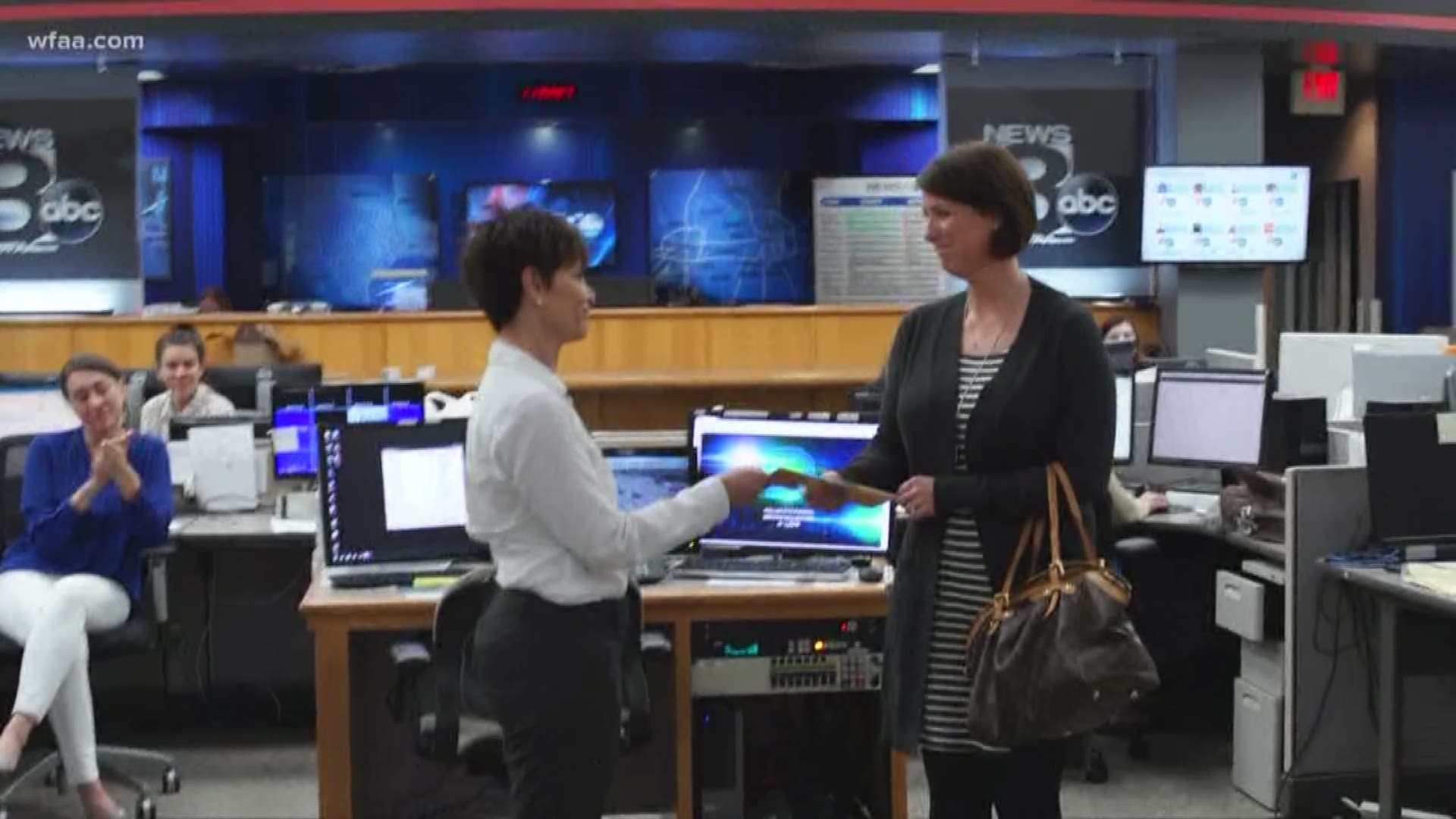DALLAS — It’s often impossible to measure the impact of most news stories that journalists either broadcast or publish.
But one piece that WFAA produced in May 2017 connected with women around the world.
"If I have to go through this knowing that it could help someone else, it helps me make sense of why I'm going through this,” said Jennifer Cordts, 47.
In May 2017, WFAA broadcast Cordts’ story – an emotional and honest interview that started with a small rash she noticed on her left breast.
"I went and got a mammogram and it came normal. Everything looked fine,” she said in 2017.
It took doctors eleven more months to discover that small rash was a rare disease: inflammatory breast cancer.
At the time, doctors said they thought she had three to five years to live.
"I wouldn’t be truthful to you or anybody else if I didn't say I was sad. And maybe a little made but mostly sad,” Jennifer told WFAA last year.
But in the last 11 months since WFAA first told her story, Jennifer's experience has been shared around the world.
Several women said it saved their lives by helping them recognize similar symptoms.
That foundation, Jennifer said, gives grants to researchers looking for a cure. She also credits it with support and assistance since she was diagnosed.
"You know, I suspect this money won't save my life but I am at peace knowing it's going to save somebody else’s,” Jennifer told the WFAA newsroom wiping away tears.
"I felt silenced for so many months like no one could hear me begging and pleading for this ailment that I had. I feel like WFAA listened and heard and shared and now have donated toward research. I feel like together collectively we are making a difference."
Jennifer's 19-year-old daughter recently gave a TED Talk at college explaining Inflammatory Breast Cancer to a new audience.
Her sister, Suzanne, rolled up a sleeve to forever inscribe her support in a tattoo that says Love is greater than Cancer.
"I guess what it sort of represents for me is this army of people that are standing behind me,” Jennifer explained. “It just makes me feel stronger in my fight. It makes me feel like if I get knocked down then someone's on either side of my arm and they just lift me back up. And it's true. It is stronger than cancer."
Jennifer said she is due for radiation soon to treat some residual tissue in her breast. Though tumor markers have increased, she said they have not been reflected in her regular scans.
Her advice to others worrying over a medical condition: "You are your best advocate. You have the loudest voice. You have to trust your instinct and you can't take no for an answer."
She did for several months until a doctor correctly identified her rash as a rare disease.
Even with stage four cancer, Jennifer, who has so effectively communicated what life is like with terminal cancer, said she is at peace.
"For as long as I can speak, I will,” she added.

